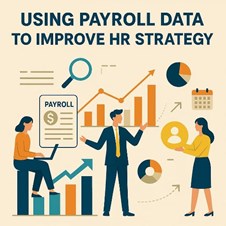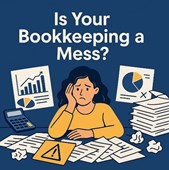Are You Paying Too Much in Taxes? What You Need to Know About Deductions

Are You Paying Too Much in Taxes? What You Need to Know About Deductions
Every year, millions of Americans overpay their taxes—often without realising it. The reason? Missed deductions, overlooked credits, and a lack of strategic tax planning. Whether you’re an employee, self-employed, or running a small company, understanding how deductions work is the key to reducing your tax liability legally and efficiently.
Here’s what you need to know about identifying, organising, and maximising deductions so you can keep more of your hard-earned money.
1. What Are Tax Deductions?
A tax deduction reduces your taxable income, which means you pay less tax. For example, if you earn $80,000 and claim $10,000 in deductions, you’re only taxed on $70,000.
Deductions differ from tax credits, which directly reduce the tax you owe dollar-for-dollar. Both are essential, but deductions offer broader planning opportunities throughout the year.
2. Common Tax Deductions Many People Miss
Here are some often-overlooked deductions you may qualify for:
- Home Office Deduction: If you use part of your home exclusively for business, you can deduct rent, utilities, and internet costs.
- Medical and Dental Expenses: Eligible costs exceeding a certain percentage of your income can be deducted.
- Charitable Donations: Cash and non-cash contributions to qualified charities.
- Education Expenses: Student loan interest, tuition fees, and continuing education courses.
- Retirement Contributions: Contributions to IRAs or 401(k) plans often lower taxable income.
- Business Expenses: Supplies, equipment, travel, and professional services related to your work.
- Many taxpayers overlook these because they don’t maintain proper documentation or misunderstand qualification rules.
3. Standard Deduction vs. Itemised Deduction
You can either take the standard deduction or itemise deductions—whichever reduces your tax bill more.
For 2025, the standard deduction is:
- $14,600 for single filers
- $29,200 for married couples filing jointly
- If your eligible expenses exceed these amounts, itemising may yield greater savings.
4. Why You Might Be Overpaying Taxes
Several factors lead to higher-than-necessary tax payments:
- Filing without reviewing deductions and credits.
- Failing to track deductible expenses during the year.
- Not adjusting withholding or estimated payments.
- Missing state-level deductions.
- Relying solely on generic software instead of a professional review.
- Even a small oversight can cost hundreds or thousands of dollars annually.
5. Strategic Tax Planning: A Year-Round Effort
Tax savings don’t happen at the filing deadline—they’re built through proactive planning. Regularly meeting with a CPA helps you:
- Identify mid-year deduction opportunities.
- Adjust withholdings based on life changes (marriage, new job, business growth).
- Time income and expenses are strategically designed to minimise liability.
- Ensure compliance with changing IRS regulations.
- By maintaining organised financial records throughout the year, you can maximise deductions when it’s time to file.
6. The Importance of Professional Guidance
While tax software simplifies basic filing, it can’t replace the judgment of an experienced professional. A CPA can interpret complex tax laws, uncover industry-specific deductions, and help you make smarter financial decisions—especially if you own a small business or have multiple income sources.
7. Take Control of Your Taxes
Instead of waiting until April, start planning early. Review your past returns, categorise recurring expenses, and consult a professional to ensure you’re not overpaying. Effective tax management is not just about reducing what you owe—it’s about using every available tool to strengthen your overall financial position.
Conclusion
If you suspect you’re paying more in taxes than necessary, it’s time to consult professionals who understand how to legally minimise liability. K. Naik & Associates LLC, based in Princeton, NJ, specialises in tax preparation, accounting, business consulting, and financial planning. Their experienced CPAs help individuals and small businesses identify hidden deductions, claim eligible credits, and develop year-round tax strategies that maximise savings. With their guidance, you’ll gain clarity, compliance, and confidence every tax season.
Searching for Financial & Taxation Services? Let’s make your search simple with professionals!
Take your Financial & Taxation Services to the next level with Sulekha. Boost your online visibility, connect with more clients, and grow effortlessly!
Blogs Related to Financial & Taxation Services

How Can You Use Payroll Data to Improve HR Strategy?
How Can You Use Payroll Data to Improve HR Strategy? Payroll isn’t just about paying employees—it’s a goldmine of business intelligence. When analysed strategically, payroll data reveals patterns that can transform your HR strategy

Is Your Bookkeeping a Mess? Are You Missing Out on Growth Opportunities?
Is Your Bookkeeping a Mess? Are You Missing Out on Growth Opportunities?

Need a Clearer Financial Picture? Why Compilation Services Can Help
Need a Clearer Financial Picture? Why Compilation Services Can Help. Understanding your company’s true financial health begins with accurate reporting. But not every business needs a full audit or review. For many small and mid-sized organisations,

Do You Need Clearer Financial Insights? What Can Modern Auditing Services Offer?
Do You Need Clearer Financial Insights? What Can Modern Auditing Services Offer? In today’s fast-paced business world, financial clarity is more than an advantage—it’s a necessity. Whether you run a small enterprise or a growing corporation, accurat

How Do You Find the Right Life Insurance Policy?
How Do You Find the Right Life Insurance Policy? Life insurance is more than a safety net—it’s a cornerstone of sound financial planning. Whether you’re protecting your family’s future, securing your business, or planning your estate, finding the ri

Why Is Investment Management Critical for High-Net-Worth Individuals?
Why Is Investment Management Critical for High-Net-Worth Individuals? Wealth accumulation is an achievement—but managing it effectively is an even greater challenge. For high-net-worth individuals (HNWIs), wealth management requires precision, fores




